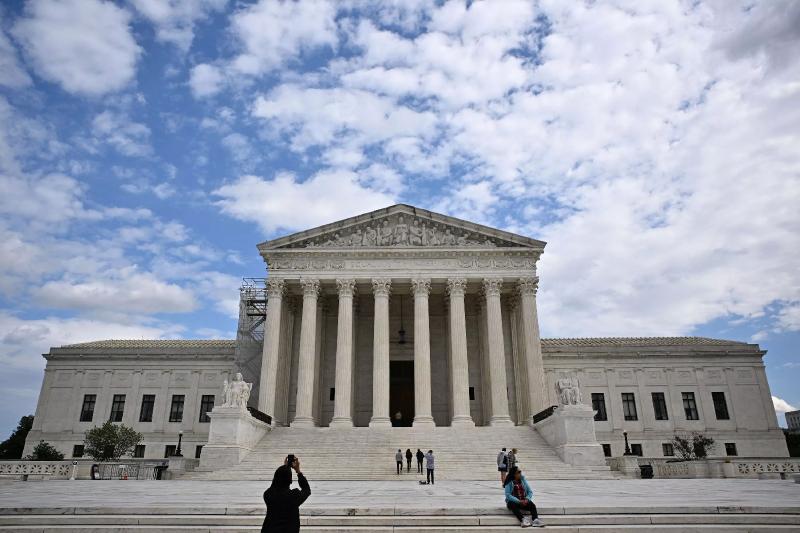Supreme Court Should Prevent New 'Guess Tax' on Family Businesses | Opinion



By John Breaux Saving America's Family Enterprises
The U.S. Supreme Court, in the case of Moore v. United States, will soon consider whether Americans can be taxed on the increased value of their assets—their property or their businesses—even if those assets have not been sold. The case could not be more timely, as there has been a flurry of misguided proposals in Washington—both from Congress and the White House—to tax these unrealized gains under the guise of "wealth taxes."
As a lifelong Democrat and longtime member of the Senate Finance Committee, I have advanced and supported ideas to uphold our progressive tax system, where those who make more pay more. But taxes on unrealized gains make absolutely no sense and would do more harm than good.
That's why I have co-signed an amicus brief urging the Supreme Court to reaffirm that gains have to be realized before they are taxed as income under the Sixteenth Amendment. Upholding this principle is important. Upending it would wreak all kinds of havoc on families, on businesses, and on our economy as a whole.
Under new taxes on unrealized gains, taxpayers would have to go through the arduous process of assessing the value of their illiquid assets every year—and face penalties if their estimates differ from the IRS' estimates. But there is simply no objective, reliable way to measure that value if the assets go unsold. It's a "guess tax," plain and simple—one that would bring generational consequences.
The US Supreme Court is seen in Washington, DC, on October 9, 2023.Mandel NGAN / AFP/Getty Images
Family businesses in particular would suddenly find themselves in the precarious position of having to sell assets just to pay the tax. It's not hard to see how this could quickly turn a liquidity crunch into a liquidity crisis. Capital that could be used for further investment or expansion of a business would have to be liquified and sold, and then a tax on the proceeds would have to be paid to the government.
The chilling effect that taxing unrealized gains would have on everyday investments, savings, and the economy would be enormous. Incentives for aspiring entrepreneurs would diminish and many would conclude the financial risks of starting a new venture could not be justified.
Moreoever, how would the IRS—an already beleaguered and under-resourced agency—be able to effectively collect a tax that is based on ever-changing assessments of wealth? An unthinkable amount of time and resources would have to be devoted to creating systems for Americans to appraise their illiquid assets and for the IRS to then defend those assessments. All of this would distract from what our main focus should be: enforcing the current tax code and closing the tax gap—the estimated $688 billion that goes uncollected every year under existing tax law.
And while these proposals are often marketed as "wealth taxes," history shows that new taxes often expand incrementally to eventually encompass the middle class—even if their initial target is the wealthy. This is exactly what happened with the income tax, which began as a "class tax" and ended up as a mass tax.
Here's what needs to happen. The Supreme Court must uphold the integrity of our progressive tax system, and recognize that new taxes on unrealized gains are both unconstitutional and unworkable. Then, instead of further complicating an already loophole-laden system, the federal government should focus on ensuring that the wealthy pay what they owe under the law. This is the best path forward to protect family businesses and hard-working taxpayers.
John Breaux is a spokesman for Saving America's Family Enterprises, a nonprofit, nonpartisan educational organization advocating against tax proposals that complicate the tax code. He served as a U.S. Senator from Louisiana from 1987-2005, and was co-chair of the 2005 Tax Reform Commission.
The views expressed in this article are the writer's own.
No trump or fascist nonsense.

 Article is LOCKED by author/seeder
Article is LOCKED by author/seeder



"And while these proposals are often marketed as "wealth taxes," history shows that new taxes often expand incrementally to eventually encompass the middle class—even if their initial target is the wealthy. This is exactly what happened with the income tax, which began as a "class tax" and ended up as a mass tax"
This could turn out to be a very involved, complex, and interesting case.
Moore v. United States: Tax Unrealized Income Case (taxfoundation.org)
But what about unrealized losses?
That’s a great question. An answer to which may loosely exist in contract law.
When working on contract government projects they often institute a penalty clause if the project is not finished on schedule. It’s a monetary penalty with cuts payments to the contracted company via some schedule. This concept was challenged, at least in Michigan, to be an unfair contractual action if there wasn’t an equivalent reward clause if finishing ahead of schedule.
The State of Michigan fought it and lost in court so now if there is a penalty clause, there must also be a reward clause.
The only reason many people are for taxes like this is because they believe such taxes will never affect them. If it did affect them they would be livid.
Imagine having to give an additional 20% (capital gains) of money you have earned, to taxes above and beyond what you have already been taxed.
Having just gone through it, it’s extremely distasteful.